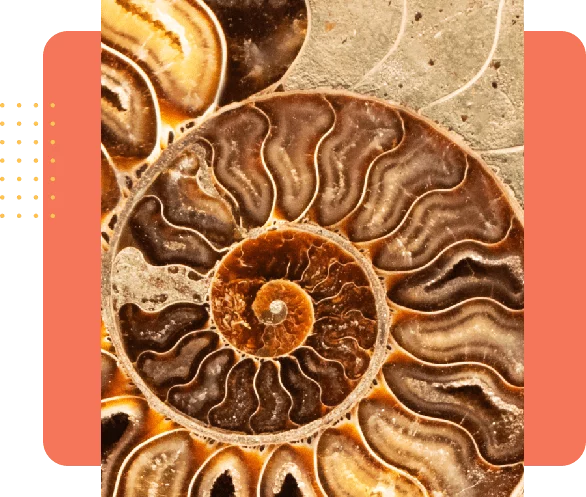What is the meaning of our existence? What is our purpose in life?
We all find ourselves confronted with these questions throughout our lives. We come by them in various ways. Many of us likely first heard of these questions from schooling and socialization in our faith traditions. For example, our elders taught us our tradition’s specific view on creation, morality, and how we were to live to be good persons.
Regardless of how we are first made aware of these questions or the degree to which we pursue them, the fact that we are even capable of asking these questions – individually and as a collective – speaks volumes about how our minds work and who we are. The great physicist Niels Bohr famously said that “a physicist is an atom’s way of looking at itself.” We might expand that to say that the mind is the universe’s way of coming to know itself and evolution is the means by which this comes to be.
All of these questions point to a central concern of understanding whence we came and how we ought to live our lives. In the language that we will pursue, it is the question of how do we flourish?
From at least the time that we evolved the ability for language we likely sought means of putting to words these challenges.
We did this across three realms within our one reality. The first is the physical world. The second is our internal selves, which is our own subjective experiences and qualia. The third is the intersubjective realities that we create together.
With regards to the physical realm, we made and remade our environments with ever-increasing levels of sophistication and ability, especially since the scientific revolution of the late 16th century. We have so totally remade our environment that scientists coined a new geological era – the Anthropocene – to denote the era in which humans were the primary driver of Earth’s climate.
Daily, millions of people safely board planes and fly to their destinations in hours that used to take days, weeks, or months. We also regularly put people into space and return them safely.
From inside to outside
We also improved our interior and intersubjective realms, but not nearly to the same level as with our physical realm.
The skeletal record of humans, our primate ancestors and related primates clearly shows that interpersonal violence has been a feature from the beginning. Some of the oldest myths and stories that we have are from societies that were imbued with a glorified war and the warrior ethos as seen in the Iliad, Rig Veda, and others. But we have largely overcome these prior ways of living. Blood oaths, reprisals, and honor killings are no longer the norm. Instead, we have formed orderly systems of government and legal frameworks to arbitrate our disputes without the need for physical violence. Steven Pinker is his recent works, The Better Angels of Our Nature and Enlightenment Now, details these and related improvements.
Even though it may not yet be the end of history, there has been a steady tide away from autocratic rule towards democracies. In historical terms, autocratic rule might have reached its zenith with the absolute monarchies of France and Russia, which were both overthrown by revolutions of the 18th and 19th centuries. Still, even in the so-called first world there still remain a number of monarchies (e.g., the EU has seven member states that are forms of a monarchy). There are few truly autocratic countries today (e.g., Iranian theocracy, North Korean dictatorship).
In the early 20th century we witnessed two great world wars that had been preceded by several others in the 19th century: the Napoleonic Wars, The American Civil War, and the Franco-Prussian War; as well as a whole host of others done in the name of the great game and nation-state empire building.
The UN was created to deal with ending global wars. The origins of what is today the European Union started out as the European Coal and Steel Community made up of West Germany, France, Italy, Luxembourg, Netherlands, and Belgium after WWII to limit the ability of the great European powers to ever again start a world war against each other. The Nuremberg Trials realized the potential for creating international laws.

We developed hospitals and moved medicine from an occult and folk practice to one based upon science. This resulted in discoveries such as the germ theory that would lead to the creation of vaccines and save millions of lives.
We reduced child mortality (death before age five), which stood at 43% in 1800 to less than 1% in developed countries today.
In order to understand our intersubjective realities, the Harvard anthropologist Clifford Geertz provides us with quite a useful metaphor. He wrote that “man is an animal suspended in webs of significance he himself has spun.” These webs stretch back in time to the very earliest moments of our awakening. At some point in the past, our ancestors started to have the sort of first-person subjective experiences of consciousness that we have and take for granted today. They awoke into a world in which there were very few, if any, prior webs and had to set out starting to weave the first ones.They began to ask: “What caused the seasons? Lightening? Birth and death?” This awakening must have happened at some point prior to the creation of artifacts such as flutes (42,000 years ago); as well as statues such as the Lion-man; the various Venuses such as those of Willendorf and Hohle Fels; not to mention the many famous cave paintings such as those in the south of France at Lascaux, that show us the sort of abstract thinking and meaning-making to which we are accustomed.
We engaged in self-reflection and discovery that led to a plethora of practices from the meditative practices of the Buddhists, to ascetic regimes across many religions, to the use of hallucinogens by many others.
With all that we have seen, done, and accomplished, we could be physically and mentally healthier than at any time in the past. Yet, we too often are not.
Paradoxes around us
The United States provides a perfect case study of the paradox and contrasts of today.
The US has arguably the most advanced science and medical facilities in all of the world, yet as a whole, the country is ranked poorly in overall health surveys.
Derek Bok, Harvard University’s former president, noted that “people are essentially no happier today than they were 50 years ago, despite a doubling or quadrupling of average per capita income”.
A recent US survey found that only 25% of 18 to 34-year-olds described themselves as “very happy.”
Around 300 million people (~3%) worldwide suffer from some form of depression.
Over 800,000 persons commit suicide each year, which is enough to list suicide as the second most frequent cause of death for 15 to 24-year-olds in the developed world. Suicide rates in the US have reached their highest levels recently.
This list of current maladies can go on and on. Sometimes it may feel as if we are regressing instead of progressing, perhaps, because of the disconnect in terms of progress that we see across the different realms.
Why is this the case?
Our problem does not seem to be that we are not aware of the problem.
There has been heightened concern approaching a sort of epidemic of anxiety over our flourishing as of late.

Self-help books regularly feature in the New York Times Best Sellers List. The self-help genre itself also occupies many times the space of philosophy in bookstores. There seems to be no end of TEDTalks, podcasts, and the like on topics relating to how to live the best life. Psychologists and neuroscientists, as well as journalists who report on their work, can become household names today in these fields. Oprah made an empire largely based upon promotion of different remedies.
We also see this in our politics. Much of what drives the various forces of disruption that we are now witnessing may stem from insecurity about meaning, purpose, and ultimately flourishing.
Because the last enlightenment was focused on the physical realms even as it tried to apply lessons from those disciplines to our other realms but in so doing often made category errors. A new enlightenment, or a new Newton, or Copernican revolution will be needed for our improvement in these other realms. Just as radical new physical scientific ideas opened up new worlds, new ideas about our mental and intersubjective worlds could do the same.

